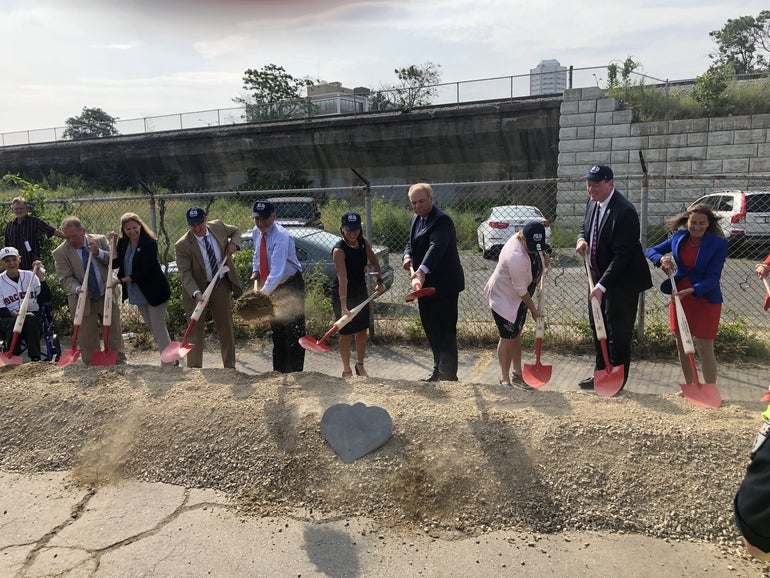Cannabis, Polar Park, The Reactory, Worcester Regional Airport – Here is what we think will happen in 2020.
Get Instant Access to This Article
Subscribe to Worcester Business Journal and get immediate access to all of our subscriber-only content and much more.
- Critical Central Massachusetts business news updated daily.
- Immediate access to all subscriber-only content on our website.
- Bi-weekly print or digital editions of our award-winning publication.
- Special bonus issues like the WBJ Book of Lists.
- Exclusive ticket prize draws for our in-person events.
Click here to purchase a paywall bypass link for this article.
Every year, Worcester Business Journal's Editorial staff forecasts some major news items for the coming year, based on short- and long-term trends in the Central Massachusetts business community.
The logjam waiting for Massachusetts Cannabis Control Commission approvals will break.
No major issues have been reported with retail marijuana sales so far. Seeing that and how more communities and businesses are acclimating to the process, the state will begin loosening its slow review process, which has brought only about three dozen stores statewide.
[RELATED: How did WBJ Editorial's staff do with its 10 news event predictions for 2019?]
Expect some white knuckles with the Polar Park construction timetable, although the stadium will open in 2021 as planned.
The ballpark is slated to open in April 2021 for the minor league Worcester Red Sox, a timeframe planners acknowledge leaves little room for error. Big projects can be complicated, and Worcester winters are rough. Yet, with the Red Sox liable for cost overruns, the project seems likely to get built on time, even if it requires work virtually around the clock near the end.
A lack of demand to fly in and out of Worcester Regional Airport hampers flight growth.
It's a classic Catch-22: People would love to fly out of Worcester more and avoid driving to Boston’s Logan Airport. Yet, with so few flights today, airplanes aren’t full often enough for airlines to add more options. The challenge doesn’t seem to be resolved any time soon.
The Worcester Regional Transit Authority will move to become a fare-free system.
On the strength of a report from the Worcester Regional Research Bureau arguing ridership will increase, the WRTA board in August voted to explore eliminating fares on all its bus routes. The WRRB report already shows the system won't lose as much money as expected (because of the cost now of collecting fares), and Lawrence has had promising results from a fare-free pilot program. As Central Massachusetts becomes increasingly unaffordable for poorer populations, WRTA will start a pilot program of its own.
Central Massachusetts home prices will continue to climb, led by MetroWest.
Even if an economic slowdown might be on the horizon, two factors will keep prices high: There simply aren't enough new homes being built across Central Massachusetts, and demand in the region will only grow as more people sprawl out of Greater Boston, seeking affordability. The communities along the I-495 belt will lead the way.
Office vacancy rates will be an issue in Worcester, Westborough, Fitchburg, Marlborough, Natick & Shrewsbury.
Those communities all saw office vacancy rates increase in 2019, and 2020 shows little reason the trend will change. Large office footprints in Worcester and MetroWest are a fraction of what companies have to pay to be in places like Cambridge's Kendall Square or Boston's Seaport. Yet, big firms with deep pockets keep moving further into that region's core anyway, wanting an enviable address where they can attract top talent. Suburban office parks in places like Marlborough and Westborough can't compete, and Worcester's too far away to close the gap.
Generous government incentives will be needed to fill The Reactory.
For the planned Worcester biotechnology office and lab cluster, WuXi Biologics, a Chinese firm, has been lined up for a year and a half but still hasn't completed its deal to be an anchor tenant despite up to $21 million offered from the city and state in grants, rent abatements and loans. New construction is expensive, and without being able to command higher rents, further subsidies will be needed to keep the project moving forward with tenants to complement WuXi.
More hotels will be announced and built in Worcester.
Even with two planned hotels across from Polar Park and another next to Union Station in Worcester, the metro area still trails regional and national peers when it comes to the number of hotel rooms. Occupancy data shows there’s demand for more rooms in and around the city, with colleges, hospitals and other businesses making it necessary to add more beds.
Central Massachusetts will still have 17 colleges and universities in 2021.
The bell may be tolling for the higher education industry, with its bloated legacy and administrative costs and fewer high school graduates available to apply. Two Massachusetts colleges and seven New England colleges have closed. Yet, the 17 institutions of higher learning in Central Massachusetts appear to be hanging on, thanks to either large endowments, specialized programs or nimble administrative moves. They may not be around forever, but we don’t see any college in this region closing in 2020.
The MassHealth nursing home funding initiative will be resolved before it heads to the November ballot.
If approved on the 2020 ballot, the Massachusetts Nursing Homes Medicaid Ratemaking Initiative would change the formula for reimbursing nursing homes, of which three dozen have closed in the past two years. Rather than risk the extreme costs of voters approving the initiative, the Legislature will compromise.

